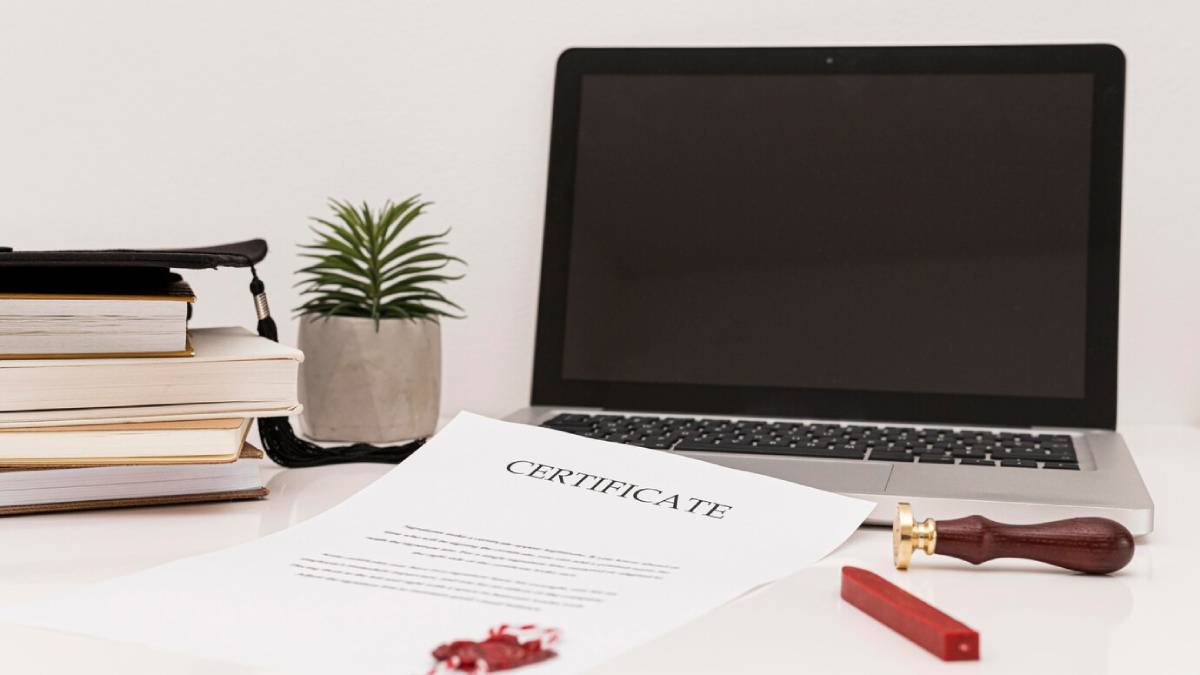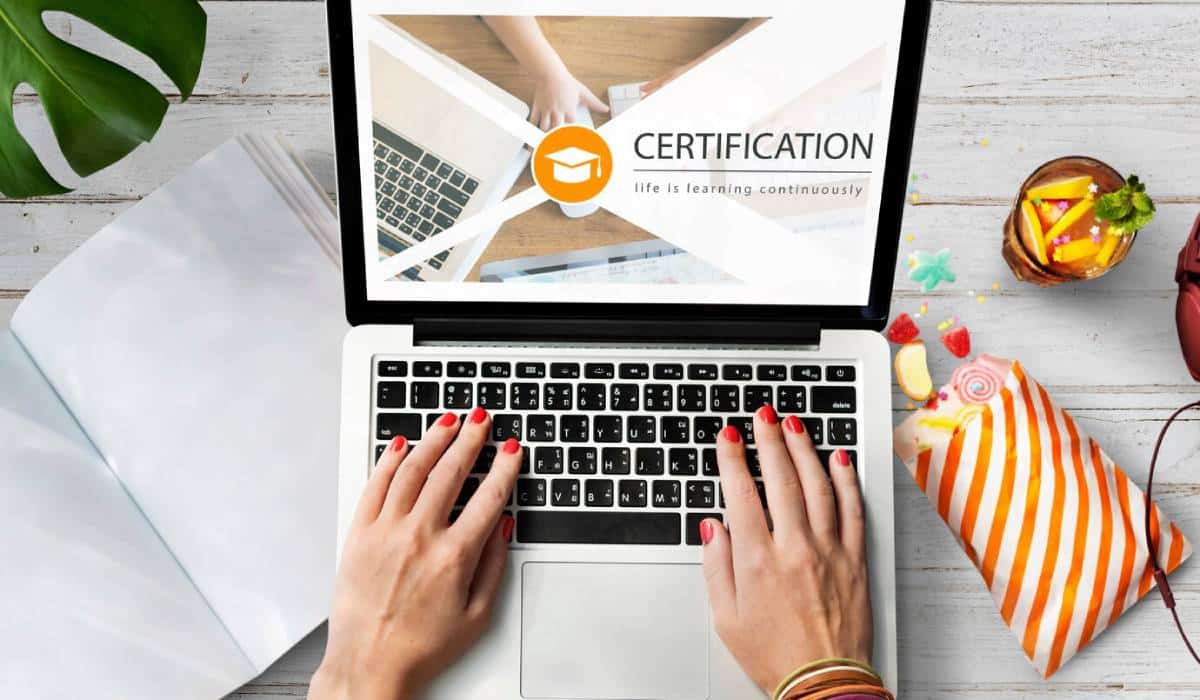
How to Earn a Certificate from Free Online Courses
In today’s digital age, acquiring new skills and enhancing your knowledge has never been more accessible. Free online courses, known as MOOCs, have changed how we learn. They provide flexibility and a wide range of subjects to study. Beyond personal enrichment, these courses often provide the opportunity to earn a course completion certificate, a valuable asset in the job market.
Getting a free certification shows your commitment to learning. It also highlights your dedication to growing in your career. If you want to change careers, move up in your job, or learn new skills, knowing how to find free online certifications is key.
Understanding the Core
What Are MOOCs?

Massive Open Online Courses (MOOCs) are online courses designed for unlimited participation and open access via the web. They cover a wide range of topics and are often created by universities, colleges, and industry experts. Coursera, edX, and FutureLearn provide courses that let learners study at their own pace. This flexibility is a key benefit for users.
The Value of Free Certifications
MOOCs attract people with free access to quality education. Many platforms also provide certificates when you complete a course. These certificates can be instrumental in:
- Enhancing your CV: Demonstrates initiative and a commitment to learning.
- Career advancement: Shows employers your dedication to professional development.
- Skill validation: Provides proof of acquired knowledge in a specific area.
Many courses are free, but getting a certificate may cost money or require meeting certain criteria.
Quick Guide / Checklist
Here’s a concise checklist to guide you through earning a certificate from free online courses:
- Identify your learning goals: Determine what skills or knowledge you wish to acquire.
- Research accredited platforms: Look for reputable MOOC providers offering free certifications.
- Check certificate availability: Ensure the course offers a certificate upon completion.
- Understand the requirements: Some courses may require assessments or projects for certification.
- Stay committed: Allocate regular study time to complete the course successfully.
Step-by-Step Guide: How to Practise
1. Define Your Learning Objectives
Before enrolling, clarify what you aim to achieve. Having clear goals helps you stay focused. This is true whether you’re learning a new skill, improving your knowledge, or exploring a new field.
2. Choose the Right Platform
Select a reputable MOOC provider that aligns with your goals. Some renowned platforms include:
- Coursera: Offers courses from top universities and organisations.
- edX: Provides a wide range of university-level courses.
- FutureLearn: Focuses on courses from UK institutions.
- Alison: Offers free online diplomas and certificates.
3. Verify Certificate Availability
Not all free courses offer certificates. Verify the course details. Make sure a completion certificate is offered. Also, note any fees or requirements.
4. Enrol and Commit
Once you’ve selected a course, enrol and set a study schedule. Consistency is key. Allocate specific times during the week dedicated to studying to ensure steady progress.
5. Engage with the Course Material

Actively participate in all course components:
- Lectures: Watch or read all provided materials.
- Assignments: Complete all tasks and projects.
- Quizzes: Always take assessments seriously. They help determine your eligibility for certification.
6. Complete the Course Requirements
Ensure you’ve met all the criteria for certification, which may include:
- Passing grades: Achieving a minimum score on assessments.
- Participation: Engaging in discussions or peer reviews.
- Final projects: Submitting comprehensive assignments.
7. Obtain and Share Your Certificate
Upon successful completion, download your course completion certificate. Share it on professional platforms like LinkedIn or include it in your CV to showcase your achievement.
Pro Tip: Use digital tools or planners to track your progress and deadlines. This ensures you stay on top of your coursework and meet all requirements for certification.
Best Practices & Additional Insights
- Engage with the Community: Join forums or discussion groups. This helps you understand better and see different viewpoints.
- Use Your Skills: Put what you’ve learned into practice in real-life situations or projects to strengthen your abilities.
- Stay Updated: Regularly check for new courses or updates in your field to continue your learning journey.
Important: Check that the course and platform are well-regarded in your industry before you enroll. An accredited MOOC adds more value to your professional profile.
FAQs
Are all online course certificates free?
Not always. While many courses are free to access, obtaining a certificate may require a fee or meeting specific criteria.
Do employers recognise certificates from free online courses?
Yes, especially if they’re from reputable platforms or institutions. They demonstrate initiative and a commitment to learning.
How long does it take to earn a course completion certificate?
It depends on the course. Some can be completed in a few hours, while others may take several weeks. Most platforms let you study at your own pace.
Can I use multiple free certifications to build a portfolio?
Absolutely. Certificates in various subjects can demonstrate your skills and commitment to learning to employers.
What if I don’t pass the course on the first try?
Most platforms allow you to retake quizzes or assessments. Take your time to review the material and try again.
Do I need to be tech-savvy to take online courses?
Not at all. Most MOOC platforms are user-friendly and designed for people of all skill levels. Basic computer and internet skills are usually enough.
Can I access the course materials after it ends?
Many courses let you access content after finishing. However, some may restrict access unless you’ve paid or joined a verified track.
Secret Tip: If a course costs money for certification, see if the platform has financial aid or scholarships. Many platforms provide options to support learners in need.
Conclusion: Your Path to Free Certification Starts Here

Getting a free certification from online courses isn’t just a win for you. It’s a smart step for your career, education, and confidence. With thousands of courses at your fingertips, you can easily grow and earn a course completion certificate with just a few clicks.
Free online courses can help you improve your CV, switch careers, or learn something new. They offer valuable stepping stones for your goals. The key lies in planning, persistence, and selecting accredited MOOCs that align with your goals.
So, what’s stopping you? Begin exploring, learning, and earning certifications that show your desire to succeed.
Ready to take the next step? Choose a free course today and begin your journey to certified success!


